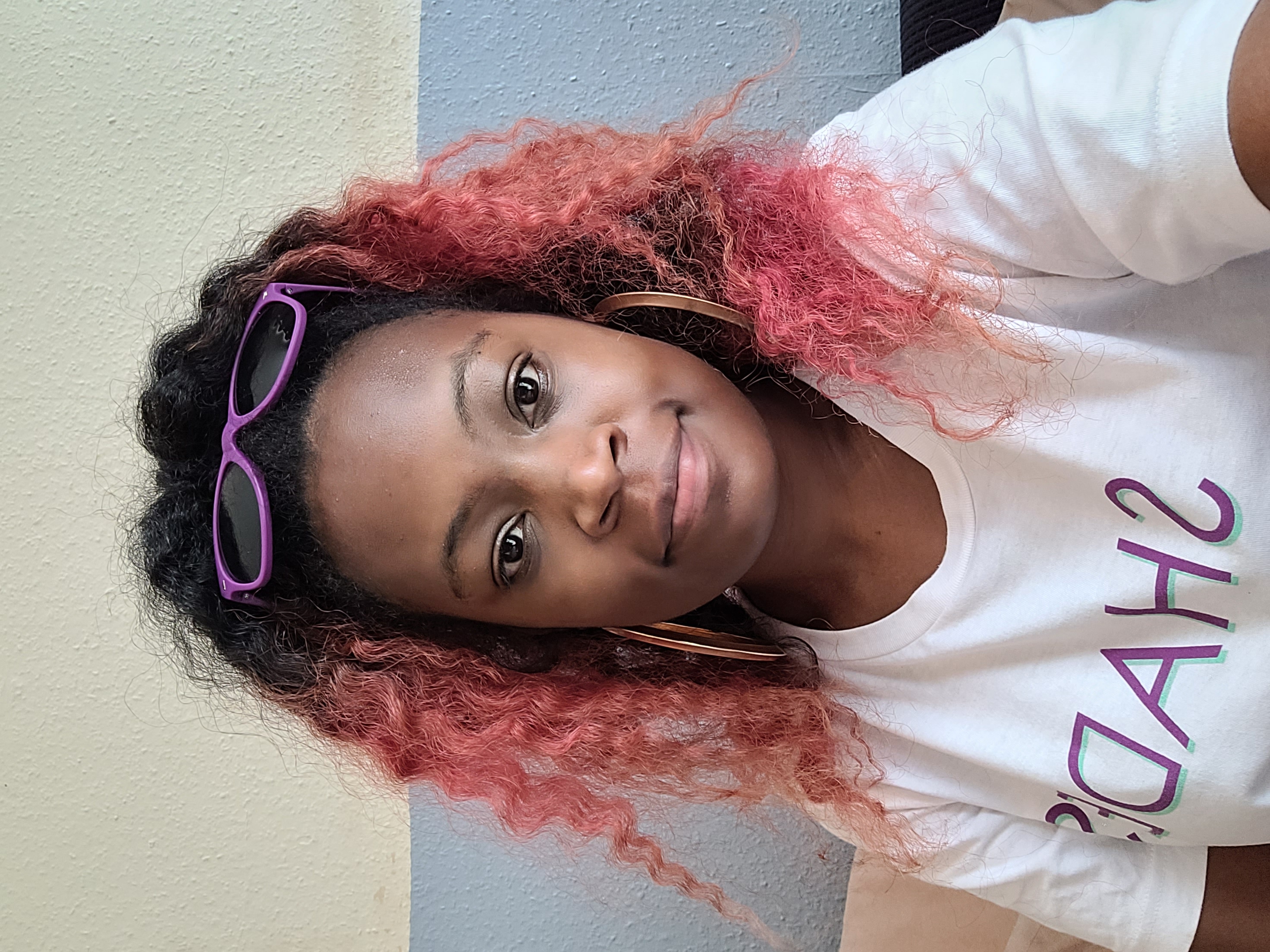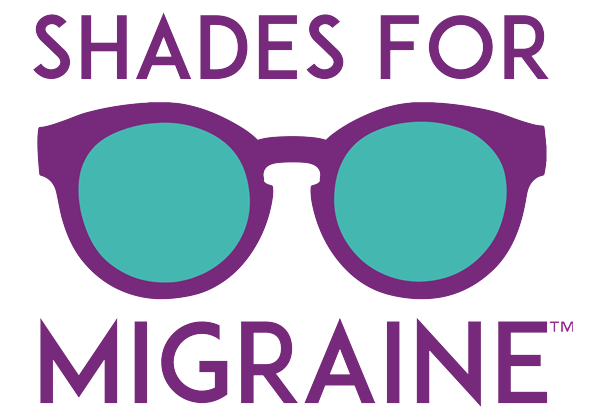Migraine: “With the lack of education around the disease, opportunities for early diagnosis were missed.” #ShadesForMigraine
Published 19 Jun 2024 • By Somya Pokharna
Tesha’s story is not just about the struggle with an invisible illness, but also about the triumph of spirit and the pursuit of holistic well-being.
In a conversation with us, Tesha opens up about her life before and after migraine became a central part of her narrative. She shares her transition from a career in health and social care to embracing holistic practices and the arts as a wellness artist and Community Leader for Carenity's partner association, Shades For Migraine. Tesha’s multifaceted approach to self-care, incorporating meditation, plant medicine, and African spirituality, offers a unique perspective on living with migraine.
Join us as we explore how Tesha maintains her mental health, manages professional aspirations, and cultivates joy despite the challenges of having a chronic illness.

Hello, Tesha! Thank you so much for your willingness to share your story with the Carenity community.
First of all, could you tell us more about yourself?
Prior to Migraine, I was a Health and Social care teacher and residential support worker, my attacks quickly begin chronic, and I had to give up both these roles. After a period of grief whilst coming to terms with my migraine diagnosis and navigating mental-ill health I developed more of an interest in holistic wellness, certifying as a post-partum doula, meditation teacher, womb steam practitioner and nervous system regulation facilitator. I also have a keen interest in plant medicine, psychedelics and African spirituality. Whilst it seems like a lot, all these modalities form an important part of my migraine treatment pie, they've helped me manage my mental health and have opened career opportunities for me as a wellness artist. Last spring I opened a film festival with a well-received meditation, followed up in the summer with a recorded guided meditation that was played on loop at an exhibition.

I'm an avid reader and have been since I was child, I'm a mood reader, so I don't gravitate towards one genre more than another, I recently started volunteering with the Literacy Trust and have been supporting their 'reading aloud campaign' reading aloud to groups of people with low literacy levels, from ESOL learners to school children. I also enjoy travelling and concerts. My favourite artist is the R'n'B singer, Joe, I've seen him five times! I've been fortunate that the accessibility teams, at concerts and in airports, have been great.
How long have you been having migraines? When did you first start experiencing symptoms?
I have had Migraine for about 9 years. I had colic which some research now suggests is an early indicator of infant migraine, I always experienced nausea when I had headaches in my teens and in my early 20s I experienced symptoms that with the knowledge I now have, I believe were signs of Migraine Aura.
I think I've always shown signs of migraine, but with the lack of education around the disease, opportunities for early diagnosis were missed.
Can you describe what a typical migraine feels like for you? How often do you experience them, and how long do they usually last? Are there any specific triggers that seem to cause them?
A typical attack always starts with an aura, usually visual where my vision is blurred, and I feel like I'm trying to look through thick fog. My neck aches, and my head feels too big for my body. Pain is almost always on the left side; my eye feels like it will pulsate its way out of my socket, and my head feels like I've bumped it and then someone is pounding it. I feel the pounding pain in my left temple and at the back of my head on the left. My jaw often tightens and aches, making it difficult to chew—soups, mash and porridge are staple parts of my diet!
Typically, an attack lasts 3 days, and before I can really recover from one, I'm already headed for another. I don't have specific triggers, I try to work with the Migraine threshold and try to maintain a low sensory environment, saving my spoons for the things that really bring me joy, however even doing this I'm rarely able to stave off attacks. During an attack I'm sensitive to light and sound and sometimes scent.
How were you diagnosed with migraines? Did you see a specialist?
I was formally diagnosed by a neurologist in 2018 and was then referred to a headache clinic. However, I had an attack in 2015 which resulted in a visit to A&E where I was told I had had a Hemiplegic Migraine attack, I was then able to get triptans from my doctor without further investigation or any really monitoring based on this one visit, probably because I didn't have a consistent G.P. Once I'd insisted on a named G.P and referred to neurology, I was told that I actually have Migraine with Aura.
What treatments or medications have you tried to manage your migraines? Have you found any to be particularly effective?
In terms of preventative medications, I have tried several anti-depressants, all three CGRP injections, toprimate, candersartan and nerve blocks. I was prescribed Atogepant a few weeks ago. As abortive medication, I use triptans, I've had most consistent benefits from Alomatriptan. I've also explored non-medicinal methods, acupuncture, Cefaly neuromodulation device, and I use ice packs, heatwraps and wear Avulux Migraine lenses. I found Aimovig to be the most effective preventative, however the side effects were unmanageable.
What coping mechanisms or strategies have you developed to deal with migraines?
I have a daily breath work and meditation schedule, when I have the capacity I do yin yoga which really helps with the neck, shoulder and jaw tension and staying connected to my body. I have also developed a post Migraine attack ritual where I wash my hair, smoke cleanse my space, watch something that really makes me laugh and have a sweet treat.
In order to monitor the mental effects of Migraine I use a 'three things' method; I try to do complete three things a day, when I'm able to do this, I know that I'm maintaining good mental health and when I cannot, I'm able to look at where I need more support and what they might look like. I vary the tasks difficulty and time so that I'm still able to feel like I've achieved something that day.
How do your migraines affect your daily life, both personally and professionally? Have they also impacted your social life or relationships?
Migraine has left me feeling vulnerable, isolated, unheard and unseen. I spend a lot of time bedridden, and my home can sometimes feel more like a prison than a home. I don't have much of a social life, a lot of my interactions are from online spaces, but they aren't substitutes for physical connection which I long for. Few physical spaces are set up to accommodate the complexities of migraine, and I seldom have the capacity to check beforehand whether a space is willing or able to accommodate me, by the time I've done that I no longer have the capacity or desire to go.
I'm no longer in employment due to Migraine, although I occasionally lead guided meditations for art and community events, these are in spaces where accessibility and inclusivity are already at the forefront of their work, so they align with my values and meet my needs without me feeling like I'm a burden. I remain hopeful that one day I will be well enough to be able to pursue wellness work as a full-time career, more than likely this will be on a self-employment basis so that I still have the flexibility to meet and manage my medical needs.
Do you receive support from family, friends, or colleagues? How important is this support to you?
I have a small but extremely supportive network of friends and family. My mom comes to all my appointments and is my biggest cheerleader, my aunties are shoulders to cry on, my brothers and cousins recognise the ways I feel vulnerable and are incredibly protective and my spiritual god-mother keeps me grounded, comforted and confident. My friends support my advocacy work, and I've had the opportunity to work alongside two of my best friends, where our passions and skills overlap. This support is incredibly important to me, especially now when we are in a climate where there is strain on mental health services.
How do you stay hopeful and positive despite the challenges of living with migraines? Are there any improvements or advancements in migraine treatment that you hope to see in the future?
There are times when I am neither hopeful nor positive and I make space for those feelings because living with this disease is hard, there isn't an area of my life or part of my being that isn't impacted by migraine. My spiritual beliefs keep me hopeful, and taking time to reflect on all I've been able to achieve whilst living with migraine continue to be a reminder of my resilience. I would like to see a reduction in neurology wait times, I would like to see a shift towards a holistic approach to treatment rather than that of looking at things in isolation or not at all, my mind, body and spirit are not separate from each other yet western medicine compartmentalizes them.
What final words of advice would you give to someone who has just been diagnosed with migraines?
Make time and space to sit with how you feel about your diagnosis, I underestimated how long I would need to grieve my able-bodied life and be kind to yourself, again this is something I failed to do, and I went through a period of self-loathing as a result.
A big thank you to Tesha for this interview conducted in association with
Did you find this story helpful?
Give it a "Like" and share your thoughts and questions with the community in the comments below!
Take care!


 Facebook
Facebook Twitter
Twitter


